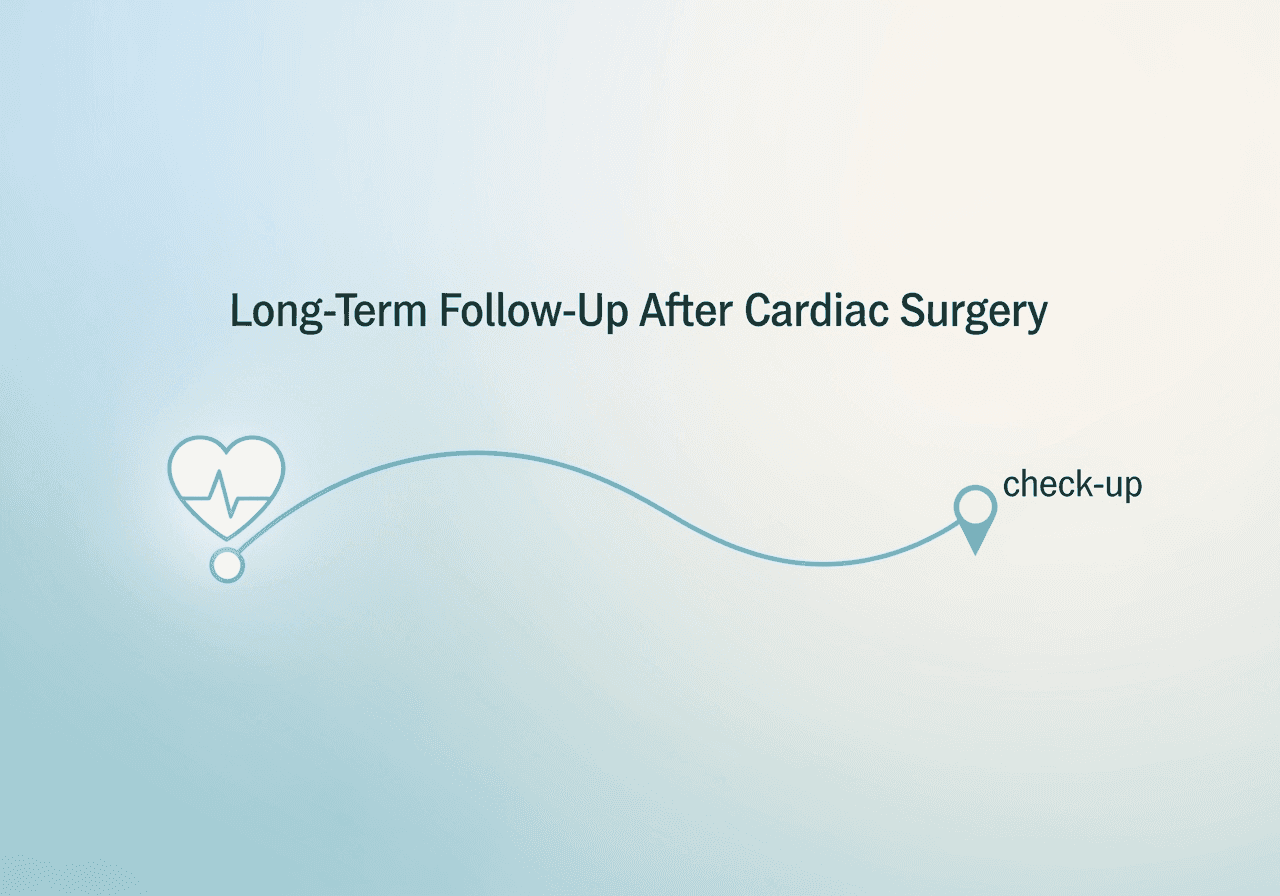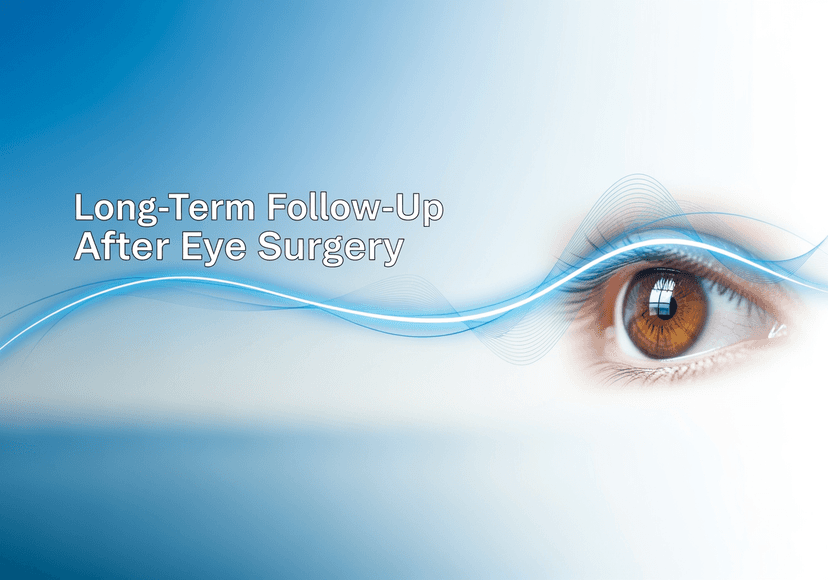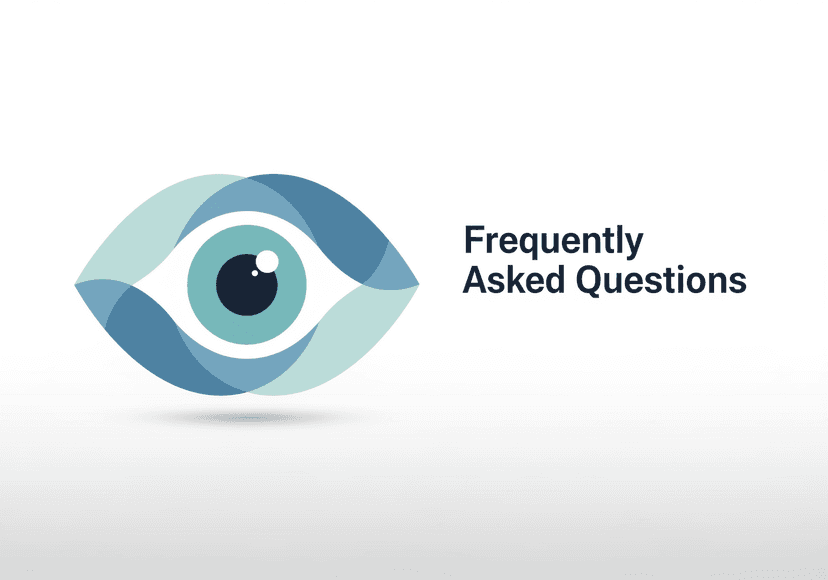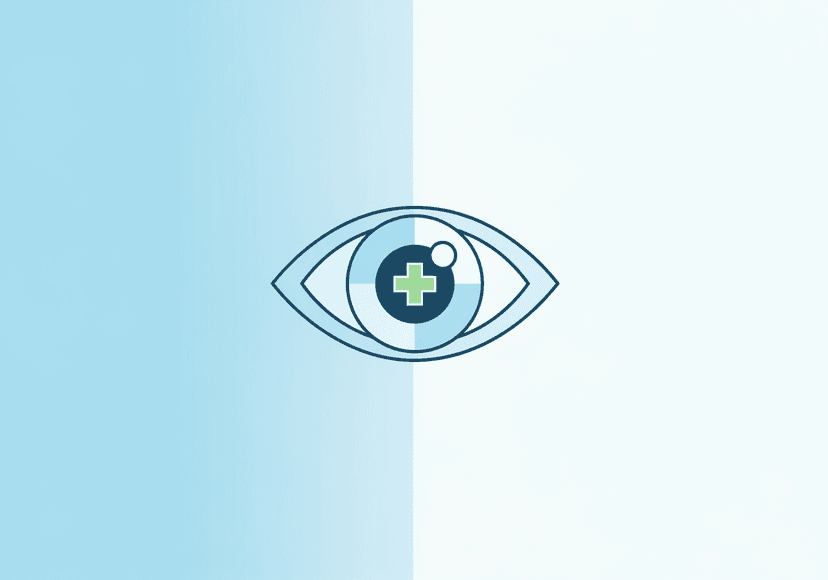
Long-Term Follow-Up After Cardiac Surgery
29 Oct, 2025
 Healthtrip
Healthtrip- Why is Long-Term Follow-Up Important After Cardiac Surgery?
- Who Needs Long-Term Follow-Up After Cardiac Surgery?
- What Does Long-Term Follow-Up Involve?
- Where Can You Receive Long-Term Cardiac Follow-Up Care?
- Managing Long-Term Cardiac Health After Surgery: Lifestyle and Monitoring
- Examples of Successful Long-Term Follow-Up Programs at Fortis Escorts Heart Institute and Memorial Sisli Hospital
- Conclusion
Why Long-Term Follow-Up Matters
Imagine building a house; you wouldn't just construct the walls and roof and then walk away, right? You'd want to ensure the foundation remains strong, the plumbing works flawlessly, and the electrical system is safe. Similarly, your heart, after surgery, needs continuous care to maintain its improved function and prevent future problems. Long-term follow-up is specifically designed to detect potential issues early, often before you even notice symptoms. This might involve regular check-ups with your cardiologist, imaging tests like echocardiograms at Saudi German Hospital Cairo, Egypt, or even lifestyle counseling. Without this ongoing care, you risk overlooking subtle changes that could indicate a problem, potentially leading to more serious complications down the line. Think of it as a safety net, providing peace of mind and allowing you to proactively address your heart health. Healthtrip understands the significance of this continuous care and assists you in finding the best follow-up programs tailored to your specific needs, ensuring your heart stays strong for years to come.
Most popular procedures in India
What to Expect During Follow-Up Appointments
So, what exactly happens during these crucial follow-up appointments? Well, picture it as a comprehensive check-in with your heart's new normal. Typically, these appointments, perhaps at Vejthani Hospital, involve a thorough physical examination, where your doctor will listen to your heart and lungs, check your blood pressure, and assess your overall health. You'll also likely discuss any symptoms you've been experiencing, no matter how minor they may seem. Blood tests are often part of the routine, helping to monitor your cholesterol levels, kidney function, and other important indicators. Depending on your specific condition and the type of surgery you had, your doctor may also recommend imaging tests, such as an electrocardiogram (ECG) or echocardiogram, to visualize your heart's structure and function. The frequency of these appointments will vary depending on your individual needs, but rest assured, the goal is always to provide personalized care and support, ensuring you're on the right track. Through Healthtrip, you can easily schedule these follow-up appointments and find medical professionals who understand your unique circumstances and are dedicated to your long-term well-being.
Lifestyle Adjustments and Cardiac Rehabilitation
Undergoing cardiac surgery often prompts a significant shift in perspective, a realization that lifestyle plays a pivotal role in heart health. Long-term follow-up isn't just about medical check-ups; it's also about making sustainable lifestyle adjustments that support your heart's recovery and prevent future problems. Cardiac rehabilitation programs, often recommended after surgery at hospitals like Fortis Hospital, Noida, are invaluable resources, offering supervised exercise, nutritional guidance, and emotional support. These programs empower you to adopt heart-healthy habits, such as regular physical activity, a balanced diet, and stress management techniques. Quitting smoking, managing your weight, and controlling blood pressure and cholesterol are also crucial components of a heart-healthy lifestyle. Remember, you're not alone in this journey. Healthtrip is here to connect you with experienced professionals who can help you navigate these lifestyle changes, providing resources, support, and encouragement every step of the way. From finding the right dietician to recommending effective exercise programs, Healthtrip ensures you have the tools you need to live a heart-healthy life.
Wellness Treatments
Give yourself the time to relax
Lowest Prices Guaranteed!

Lowest Prices Guaranteed!
Medication Management
Let's face it, managing medications can sometimes feel like a juggling act, especially after cardiac surgery. It's essential to understand the purpose of each medication, how to take it correctly, and potential side effects to watch out for. During your long-term follow-up appointments, your doctor will carefully review your medications, ensuring they're still appropriate and effective. They may adjust dosages, add new medications, or discontinue others depending on your condition. It's also crucial to communicate openly with your doctor about any concerns or side effects you're experiencing. Don't hesitate to ask questions; understanding your medications empowers you to take control of your health. Medication adherence is absolutely vital for preventing complications and maintaining the benefits of your surgery. Healthtrip can also assist you in finding pharmacies affiliated with hospitals like NMC Specialty Hospital, Al Nahda, Dubai and Taoufik Clinic, Tunisia, ensuring you have access to the medications you need, along with expert advice and support to manage them effectively. We're here to make medication management a little less daunting and a lot more manageable.
Recognizing and Responding to Warning Signs
While long-term follow-up is designed to catch potential problems early, it's also crucial to be aware of warning signs that may indicate a problem, even between appointments. Think of it as becoming your own heart health detective, paying close attention to any changes in your body. Symptoms such as chest pain, shortness of breath, palpitations, dizziness, or swelling in your ankles could be warning signs that require immediate medical attention. It's important to know when to seek help and not dismiss these symptoms as just "nothing." Don't hesitate to contact your doctor or go to the nearest emergency room if you experience any concerning symptoms. Early detection and treatment can make a significant difference in preventing serious complications. Healthtrip emphasizes the importance of being proactive about your health and encourages you to seek medical attention promptly if you notice any warning signs. We can help you locate the nearest medical facility with experienced staff, such as those at Yanhee International Hospital, ready to provide the care you need, ensuring your peace of mind and well-being.
The Role of Technology in Long-Term Cardiac Care
In today's digital age, technology is playing an increasingly important role in long-term cardiac care, making it easier than ever to stay connected with your healthcare team and monitor your heart health from the comfort of your own home. Telemedicine, for example, allows you to have virtual appointments with your doctor, saving you time and travel. Wearable devices, such as smartwatches and fitness trackers, can monitor your heart rate, activity levels, and sleep patterns, providing valuable data that can be shared with your doctor. Remote monitoring devices can also be used to track your blood pressure, weight, and other vital signs, alerting your doctor to any concerning changes. These technological advancements empower you to take an active role in your care and help your doctor provide more personalized and effective treatment. Healthtrip partners with hospitals like Quironsalud Hospital Murcia who are at the forefront of integrating these technologies into their cardiac care programs, ensuring you have access to the latest tools and resources to manage your heart health effectively. We believe that technology, combined with compassionate care, can make a real difference in improving your long-term outcomes.
Why is Long-Term Follow-Up Important After Cardiac Surgery?
Undergoing cardiac surgery is a significant step towards a healthier life, a chapter filled with hope and the promise of renewed vitality. However, think of it not as the final page, but rather the beginning of a new volume in your life's story. Just as a well-written book requires careful editing and ongoing attention, your heart needs consistent care and monitoring long after you leave the operating room. Long-term follow-up care isn't merely a formality; it's the bedrock of sustained cardiac wellness and a crucial investment in your future health. Imagine building a beautiful house – the initial construction is vital, but without regular maintenance and repairs, even the sturdiest structure can eventually fall into disrepair. Similarly, cardiac surgery provides a foundational repair, and long-term follow-up acts as the essential maintenance, ensuring your heart thrives for years to come. It helps detect potential complications early, manage risk factors, and optimize your overall well-being. This proactive approach allows medical professionals to identify subtle changes that might otherwise go unnoticed, nipping potential problems in the bud before they escalate into serious issues. Plus, it provides you with ongoing support, education, and encouragement to adopt healthy lifestyle habits that enhance the benefits of your surgery. Healthtrip understands the importance of continuous care, facilitating access to world-class hospitals and specialists who prioritize long-term cardiac health. We connect you with healthcare providers who view your heart health as a lifelong commitment, not just a one-time event.
The importance of long-term follow-up extends beyond simply preventing immediate complications; it's about maximizing the long-term benefits of the surgery. Cardiac surgery aims to improve your quality of life, reduce symptoms, and extend your lifespan. However, these benefits can only be fully realized with consistent monitoring and management of your cardiac health. For example, if you've had a valve replacement, regular check-ups are essential to ensure the valve is functioning correctly and to monitor for any signs of wear or infection. Similarly, after bypass surgery, follow-up care can help manage risk factors like high cholesterol and blood pressure, preventing the progression of coronary artery disease in other vessels. But the benefits extend beyond the purely physical. Long-term follow-up offers an opportunity to address any emotional or psychological challenges you might be facing after surgery. Adjusting to life after a major cardiac event can be stressful, and having a supportive healthcare team can make a world of difference. Furthermore, it empowers you to become an active participant in your own care, fostering a sense of control and confidence in your ability to manage your heart health. Healthtrip is committed to providing access to comprehensive care packages that include not only the initial surgery but also the vital long-term follow-up needed to ensure lasting health benefits. Think of us as your partner in navigating the complexities of cardiac care, offering a helping hand every step of the way.
Moreover, long-term follow-up is dynamic, adapting to your specific needs and evolving health status over time. It's not a one-size-fits-all approach, but rather a personalized plan tailored to your individual circumstances. Your healthcare team will consider factors such as the type of surgery you had, your age, your overall health, and any other existing medical conditions to develop a follow-up schedule that's right for you. This might involve regular check-ups with your cardiologist, periodic imaging tests like echocardiograms or angiograms, and ongoing management of medications. Crucially, it also involves education and support to help you make informed decisions about your health and lifestyle. You'll learn about heart-healthy eating, the importance of regular exercise, and strategies for managing stress. You'll also have the opportunity to ask questions, voice concerns, and receive guidance from experienced professionals. By actively engaging in your care, you'll gain a deeper understanding of your condition and the steps you can take to protect your heart health. With Healthtrip, you're not just a patient; you're a partner in your healthcare journey. We connect you with leading cardiac centers like Memorial Sisli Hospital, renowned for their comprehensive cardiac care programs, ensuring you receive the individualized attention and support you deserve. This collaborative approach ensures that your long-term follow-up is both effective and empowering, helping you live a longer, healthier, and more fulfilling life.
Who Needs Long-Term Follow-Up After Cardiac Surgery?
The simple answer is: nearly everyone who undergoes cardiac surgery benefits significantly from long-term follow-up. Whether you've had a coronary artery bypass grafting (CABG), valve repair or replacement, congenital heart defect correction, or any other type of heart surgery, consistent monitoring and care are paramount to ensuring the surgery's success and maintaining optimal heart health. It’s easy to think that once the surgery is over, the hard part is done, but cardiac health is a marathon, not a sprint. Think of it as tending a garden; you can't just plant the seeds and walk away, you need to water, weed, and nurture them to ensure they flourish. Similarly, your heart needs ongoing attention after surgery. While some individuals might assume they're "cured" after the initial procedure, it's essential to understand that cardiac surgery is often a management strategy, not a complete fix. It addresses existing problems but doesn't eliminate the underlying risk factors that contributed to the heart condition in the first place. Therefore, regardless of your age, general health, or how "successful" the surgery was deemed to be, a long-term follow-up plan is critical. Healthtrip recognizes that each patient’s journey is unique and offers customized support to ensure everyone receives the appropriate follow-up care, connecting you with hospitals such as Saudi German Hospital Cairo known for their comprehensive post-operative cardiac programs tailored to individual needs.
Certain patient populations, however, might require even closer monitoring and more frequent follow-up appointments. These include individuals with pre-existing conditions such as diabetes, high blood pressure, or chronic kidney disease, as these conditions can exacerbate cardiac problems and increase the risk of complications. Patients who experienced complications during or shortly after surgery, such as infections or arrhythmias, also need more intensive follow-up to ensure these issues are fully resolved and don't recur. Additionally, individuals who have undergone more complex or high-risk surgeries, such as heart transplants or multiple valve replacements, typically require more frequent monitoring to detect and manage any potential problems. Another group who particularly benefit from dedicated follow-up are those who had surgery at an older age. The aging process naturally puts more strain on the heart, and older adults may be more vulnerable to complications. For these patients, regular check-ups and lifestyle modifications are crucial for maintaining cardiac function and preventing further health issues. Furthermore, lifestyle factors play a significant role. Smokers, individuals with unhealthy diets, and those who lead sedentary lifestyles are at higher risk of developing further heart problems and thus require diligent monitoring and support to adopt healthier habits. Healthtrip partners with centers like Fortis Memorial Research Institute, Gurgaon, which provide comprehensive cardiac rehabilitation programs designed to address these specific needs, empowering patients to take control of their heart health through personalized exercise plans, nutritional guidance, and stress management techniques.
Ultimately, determining the specifics of your long-term follow-up plan is a collaborative effort between you and your cardiologist. It involves a thorough assessment of your individual risk factors, medical history, and the type of surgery you underwent. Your doctor will then develop a personalized schedule of check-ups, tests, and lifestyle recommendations tailored to your unique needs. Remember, this plan is not set in stone; it can be adjusted over time based on your progress and any changes in your health status. The key is to actively participate in your care, communicate openly with your healthcare team, and adhere to the recommendations as closely as possible. Don’t hesitate to ask questions, voice concerns, and seek clarification if anything is unclear. Your healthcare team is there to support you every step of the way. Think of them as your pit crew during a race, providing the necessary maintenance and adjustments to keep you running smoothly. And remember, Healthtrip is here to facilitate access to the best possible care, connecting you with leading cardiac specialists and hospitals worldwide. We understand that navigating the complexities of post-operative care can be overwhelming, so we provide comprehensive support to ensure you receive the follow-up care you need to thrive. Whether it's scheduling appointments, coordinating travel arrangements, or providing access to online resources, Healthtrip is your trusted partner in your journey to lasting cardiac wellness.
What Does Long-Term Follow-Up Involve?
Long-term follow-up after cardiac surgery is a multifaceted approach designed to monitor your heart's health, detect potential complications, manage risk factors, and optimize your overall well-being. It's not just about attending occasional appointments; it's a comprehensive, ongoing partnership between you and your healthcare team. Think of it as a regular service for your car – you wouldn't skip oil changes or tire rotations, would you? Similarly, consistent follow-up is essential for maintaining the optimal performance of your heart. The specific components of your follow-up plan will vary depending on the type of surgery you had, your individual risk factors, and your overall health status, but generally, it includes regular check-ups with your cardiologist, diagnostic testing, medication management, and lifestyle counseling. These elements work together to provide a holistic view of your cardiac health and ensure that any potential issues are addressed promptly and effectively. Healthtrip understands the importance of this holistic approach and connects you with facilities like Vejthani Hospital, known for their integrated cardiac care programs, combining advanced medical expertise with personalized support services.
Regular check-ups are the cornerstone of long-term follow-up. These appointments typically involve a physical examination, a review of your medical history, and a discussion of any symptoms or concerns you may have. Your cardiologist will listen to your heart and lungs, check your blood pressure and pulse, and assess your overall condition. These check-ups also provide an opportunity to review your medications, ensuring they are still appropriate and effective. Diagnostic testing plays a crucial role in monitoring your heart's function and detecting any potential problems. Common tests include electrocardiograms (ECGs), which measure the electrical activity of your heart; echocardiograms, which use ultrasound to create images of your heart; and stress tests, which evaluate how your heart performs during physical activity. In some cases, more advanced imaging tests, such as cardiac CT scans or MRIs, may be necessary to provide a more detailed view of your heart. Medication management is also an integral part of long-term follow-up. Many patients require ongoing medication to manage risk factors such as high blood pressure, high cholesterol, or blood clots. Your cardiologist will carefully monitor your medications, adjusting dosages as needed and addressing any potential side effects. It's essential to take your medications as prescribed and to communicate any concerns you have about them to your healthcare team. Lifestyle counseling is another crucial component of long-term follow-up. Your healthcare team will provide guidance on heart-healthy eating, regular exercise, stress management, and other lifestyle modifications that can help you maintain optimal cardiac health. They may also refer you to specialists such as dietitians or exercise physiologists for more personalized support. Healthtrip is committed to connecting you with resources that promote healthy living, empowering you to make informed choices and take control of your heart health, providing access to services at hospitals like Bangkok Hospital which emphasizes patient education and lifestyle modification programs.
Furthermore, long-term follow-up involves a proactive approach to preventing future cardiac events. This includes managing risk factors such as smoking, obesity, and physical inactivity. Your healthcare team will work with you to develop a personalized plan to address these risk factors and adopt healthier habits. This may involve quitting smoking, following a heart-healthy diet, engaging in regular physical activity, and managing stress through techniques such as yoga or meditation. Regular monitoring of blood sugar levels is crucial, especially if you have diabetes. Uncontrolled diabetes can significantly increase your risk of heart disease. Your healthcare team will help you manage your blood sugar levels through diet, exercise, and medication. They will also monitor your cholesterol levels and recommend strategies to lower them if they are too high. High cholesterol can contribute to the buildup of plaque in your arteries, increasing your risk of heart attack and stroke. Vaccination against influenza and pneumonia is also recommended, as these infections can put extra strain on your heart. Think of long-term follow-up as a safety net, catching any potential problems before they become serious. It's an investment in your long-term health and well-being. With Healthtrip, you can access world-class cardiac care and comprehensive follow-up programs designed to help you live a longer, healthier, and more fulfilling life. We connect you with hospitals and specialists who are committed to providing you with the individualized attention and support you deserve, ensuring your heart stays strong and healthy for years to come. For instance, hospitals such as Memorial Bahçelievler Hospital provide comprehensive post-operative care.
Also Read:
Where Can You Receive Long-Term Cardiac Follow-Up Care?
Finding the right place for your long-term cardiac follow-up care is crucial for maintaining your heart health. It’s not just about going to any doctor; it’s about finding a team that understands your specific needs and can provide comprehensive care. Think of it as building a partnership with healthcare providers who are invested in your well-being. You might consider several options, each with its own set of advantages. Major hospitals with cardiology departments are often excellent choices, especially those with dedicated cardiac rehabilitation programs. Places like Fortis Escorts Heart Institute, Memorial Sisli Hospital, and Saudi German Hospital Cairo, Egypt offer specialized cardiac services with experienced cardiologists and support staff. These hospitals often have state-of-the-art equipment and a multidisciplinary approach, ensuring you receive well-rounded care. Another avenue is specialized cardiac clinics. These clinics focus specifically on heart health and may offer personalized care tailored to your condition. The advantage here is the concentrated expertise and often a more intimate setting. Your primary care physician also plays a vital role in your long-term cardiac care. They can coordinate your care, monitor your overall health, and refer you to specialists when needed. It's essential to keep them informed about your cardiac history and any follow-up appointments you have with cardiologists. Regardless of where you choose to receive care, make sure the providers are board-certified in cardiology and have experience in managing post-operative cardiac patients. Check their credentials, read reviews, and don’t hesitate to ask questions about their approach to long-term follow-up. Remember, this is a journey, and you want to be in the hands of a team you trust and feel comfortable with.
Managing Long-Term Cardiac Health After Surgery: Lifestyle and Monitoring
Managing your cardiac health long-term after surgery isn't just about attending appointments; it's about embracing a lifestyle that supports your heart. Imagine it as creating a new normal where healthy habits become second nature. One of the most crucial aspects is adopting a heart-healthy diet. This means focusing on fruits, vegetables, whole grains, and lean proteins. Limit your intake of saturated and trans fats, cholesterol, and sodium. Think Mediterranean-style eating with plenty of olive oil, fish, and fresh produce. Cooking at home more often allows you to control the ingredients and portion sizes, making it easier to stick to your dietary goals. Regular physical activity is equally important. Start slowly and gradually increase the intensity and duration of your workouts. Aim for at least 30 minutes of moderate-intensity exercise most days of the week. Walking, swimming, cycling, and dancing are all excellent options. Remember to consult your doctor before starting any new exercise program, especially after surgery. Managing stress is another key component. Chronic stress can take a toll on your heart, so find healthy ways to cope. This could include practicing relaxation techniques like meditation or yoga, spending time in nature, or engaging in hobbies you enjoy. Surrounding yourself with supportive friends and family can also make a big difference and create a warm safety net around you. Regular monitoring is essential for detecting any potential problems early on. This includes regular check-ups with your cardiologist, blood pressure monitoring, cholesterol checks, and potentially EKGs or echocardiograms. Work with your healthcare team to develop a personalized monitoring plan based on your individual needs. Don't hesitate to ask questions and voice any concerns you may have. Remember, you are an active participant in your own care, and your input is valuable. By combining a healthy lifestyle with regular monitoring, you can significantly improve your long-term cardiac health and enjoy a fulfilling life after surgery.
Also Read:
Examples of Successful Long-Term Follow-Up Programs at Fortis Escorts Heart Institute and Memorial Sisli Hospital
When it comes to cardiac care, seeing successful long-term follow-up programs in action can be incredibly reassuring. Two institutions that stand out in this regard are Fortis Escorts Heart Institute and Memorial Sisli Hospital. These hospitals exemplify how comprehensive and patient-centered care can lead to positive outcomes for those who have undergone cardiac surgery. At Fortis Escorts Heart Institute, the long-term follow-up program is designed to be proactive and personalized. Patients receive regular check-ups with cardiologists who specialize in post-operative care. The program includes detailed assessments of heart function, lifestyle counseling, and medication management. What sets Fortis Escorts apart is their focus on patient education and empowerment. Patients are provided with resources and support to help them make informed decisions about their health. Group sessions and workshops are also organized to foster a sense of community and shared experience. Memorial Sisli Hospital also boasts a robust long-term follow-up program that prioritizes continuity of care. Patients are assigned a dedicated care coordinator who serves as their point of contact and helps navigate the healthcare system. The program includes regular monitoring of vital signs, blood tests, and imaging studies. The hospital also emphasizes the importance of cardiac rehabilitation, offering personalized exercise plans and nutritional guidance. One notable aspect of Memorial Sisli's program is their use of telemedicine to monitor patients remotely. This allows for timely intervention and reduces the need for frequent hospital visits. Both Fortis Escorts Heart Institute and Memorial Sisli Hospital demonstrate the value of a holistic approach to long-term cardiac care. By combining medical expertise with patient education, lifestyle support, and advanced technology, these programs help patients live longer, healthier lives after cardiac surgery. These examples illustrate that with the right care and support, a full and active life is entirely possible after a heart procedure.
Conclusion
Embarking on the journey of cardiac surgery is a significant step towards a healthier life, but it's just the beginning. The real key to lasting well-being lies in the long-term follow-up care you receive and the lifestyle changes you embrace. Think of it as nurturing a new garden – you've planted the seeds, now you need to tend to it diligently to see it flourish. Consistent monitoring, proactive management, and a commitment to a heart-healthy lifestyle are the cornerstones of successful long-term cardiac health. Whether you're receiving care at a renowned institution like Fortis Escorts Heart Institute or Memorial Sisli Hospital, or working closely with your local cardiologist and primary care physician, the key is to be an active participant in your own health. Ask questions, voice concerns, and don't hesitate to seek support when you need it. Remember, you're not alone in this journey. Millions of people around the world have undergone cardiac surgery and are living full, active lives thanks to comprehensive follow-up care and a commitment to healthy habits. Healthtrip is here to support you in finding the best possible care and resources for your long-term cardiac health. From connecting you with leading hospitals to providing valuable information and support, we're committed to helping you navigate every step of the way. So, take heart, embrace the journey, and remember that a brighter, healthier future is within your reach. Prioritize your health, stay informed, and never underestimate the power of a positive mindset and a strong support system.
Also Read:
Related Blogs

Long-Term Follow-Up After Eye Surgery
Detailed insights into eye surgery – doctors, hospitals, technology, recovery,

Healthtrip’s Transparency in Eye Surgery Pricing and Packages
Detailed insights into eye surgery – doctors, hospitals, technology, recovery,

Frequently Asked Questions About Eye Surgery
Detailed insights into eye surgery – doctors, hospitals, technology, recovery,

Advanced Robotic Technology Used in Eye Surgery
Detailed insights into eye surgery – doctors, hospitals, technology, recovery,

How Healthtrip Supports Foreign Patients for Eye Surgery in India
Detailed insights into eye surgery – doctors, hospitals, technology, recovery,

Top Medical Packages for Eye Surgery Offered by Healthtrip
Detailed insights into eye surgery – doctors, hospitals, technology, recovery,










